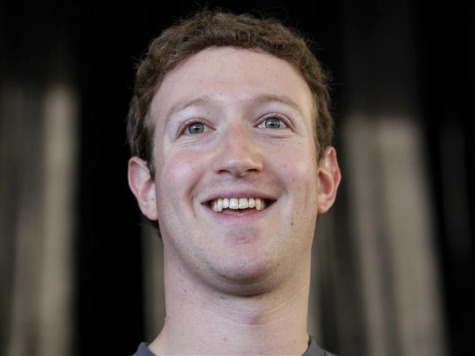
“The answer is we understand that a lot of people are disappointed with the performance of the stock, and we really are, too.”
Mark Zuckerberg, CEO, Facebook
The initial public offering of Facebook (“FB”) in May 2012 at $38 per share was heralded as a new era in investing as well as the media business. But in the year since this company went public in an abortive transaction led by Morgan Stanley, J.P. Morgan and Goldman, Sachs & Co., the tale for investors has been mostly a disappointment. See the discussion with my media maven & composer brother Michael Whalen, Facebook “Jumps the Shark,” on Zero Hedge last year.
My take on Zuckerberg has always been simple: smart young man with poorly developed business skills and, more important, a glaring lack of good professional advice. Last year’s IPO was a complete fiasco, but one that was predictable given the current state of Wall Street. The big investment houses are so desperate for deals that they will try to foist just about anything on credulous, yield starved retail investors. Blame it on the Fed or whoever you want, but today revenue is hard to come by for investment banks.
Last month Rich Karlgaard of Forbes listed “7 Reasons Why Facebook IPO Was A Bust.” First on the list was the low stock price, but the second reason is most telling, namely Zuckerberg’s disdain for investors. Karlgaard:
“He never wanted to be a public company. This became all too obvious during the IPO road show’s crucial stop in New York when (a) Zuck hid out in the bathroom and forced the audience to wait, and (b) he took the stage wearing his hoodie. Zuckerberg’s view of shareholders is like President Obama’s view of blue collar workers. He needs them but secretly laughs at them.”
One of the first things you notice when you visit the FB web site is that there is no information for investors anywhere to be found. While most public companies prominently display information for the retail investors who own their securities, with FB there is nothing but a come-on to join “the community.”
But the larger point to be made about FB is that this company in search of a business model is emblematic of a larger problem in American finance, namely that many of the investment “opportunities” that come to market today are more whimsical than substantial. Whether you look at the technology sector examples like FB or the housing space, the offerings are particularly thin when it comes to offering value to individual investors.
For example, in the most recent Form 10-Q filed by FB with the SEC, it states that “Our mission is to give people the power to share and make the world more open and connected.” The document then goes on: “We generate substantially all of our revenue from advertising and from fees associated with our Payments infrastructure that enables users to purchase virtual and digital goods from our Platform developers.”
OK, so the basic sales pitch for FB is that we can monetize the millions of eyeballs that look at our web site every day. The only trouble with this familiar come-on is that consumers tend not to want to pay for their usage of the Internet. Thus when we see that FB, even at the disappointing price of $24 per share, is valued at over $50 billion or some 500 times current earnings, it makes you wonder if all of the supposed “investors” in this company are not in reality greater fools. Personal disclosure: I don’t use FB.
Of course, the Wall Street analyst corps has projections for FB showing revenue growing from $6.7 billion in 2013 to $8.5 billion the following year, a breathtaking 26% rate of growth year-over-year. By comparison, the S&P 500 market index is expected to rise just 20% in the same timeframe. It is interesting to note that FB’s earnings for the first quarter of 2013 came in 7% below the Street’s expectations, this despite Mr. Zuckerberg’s best efforts and excuses.
My bet is that, like the once high-flying Apple Inc. (“AAPL”), FB is eventually going to fall to earth — especially once the Fed ends the extraordinary zero interest rate policy known as “quantitative easing.” But as we all know, the trick in life is about telling the difference between quality and quantity, about volume vs. returns.
Stay tuned.

COMMENTS
Please let us know if you're having issues with commenting.